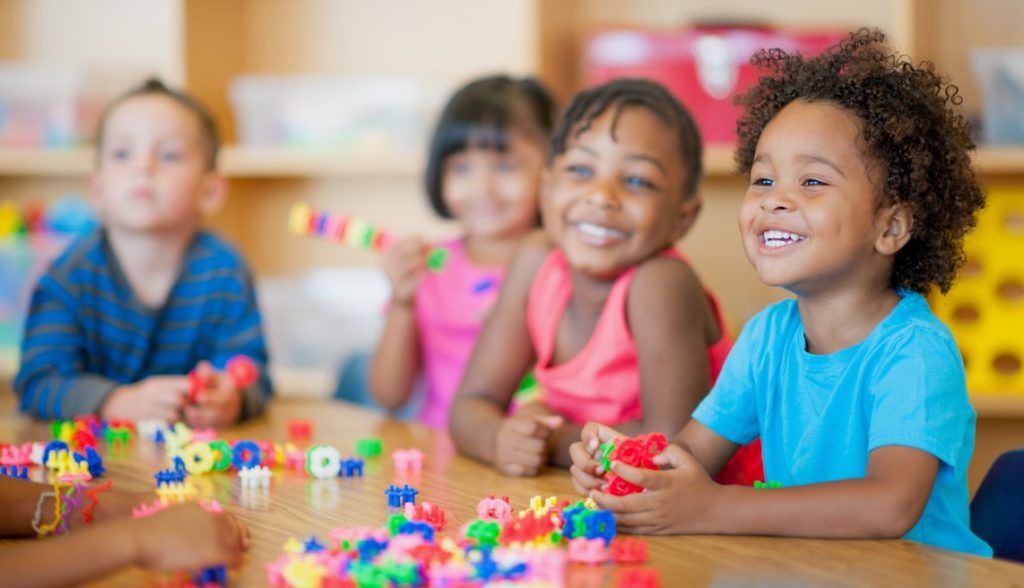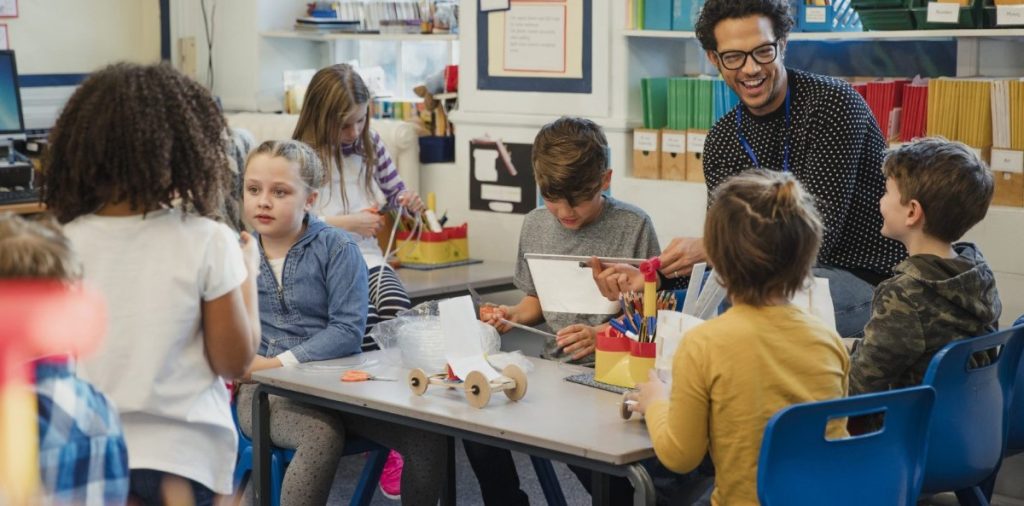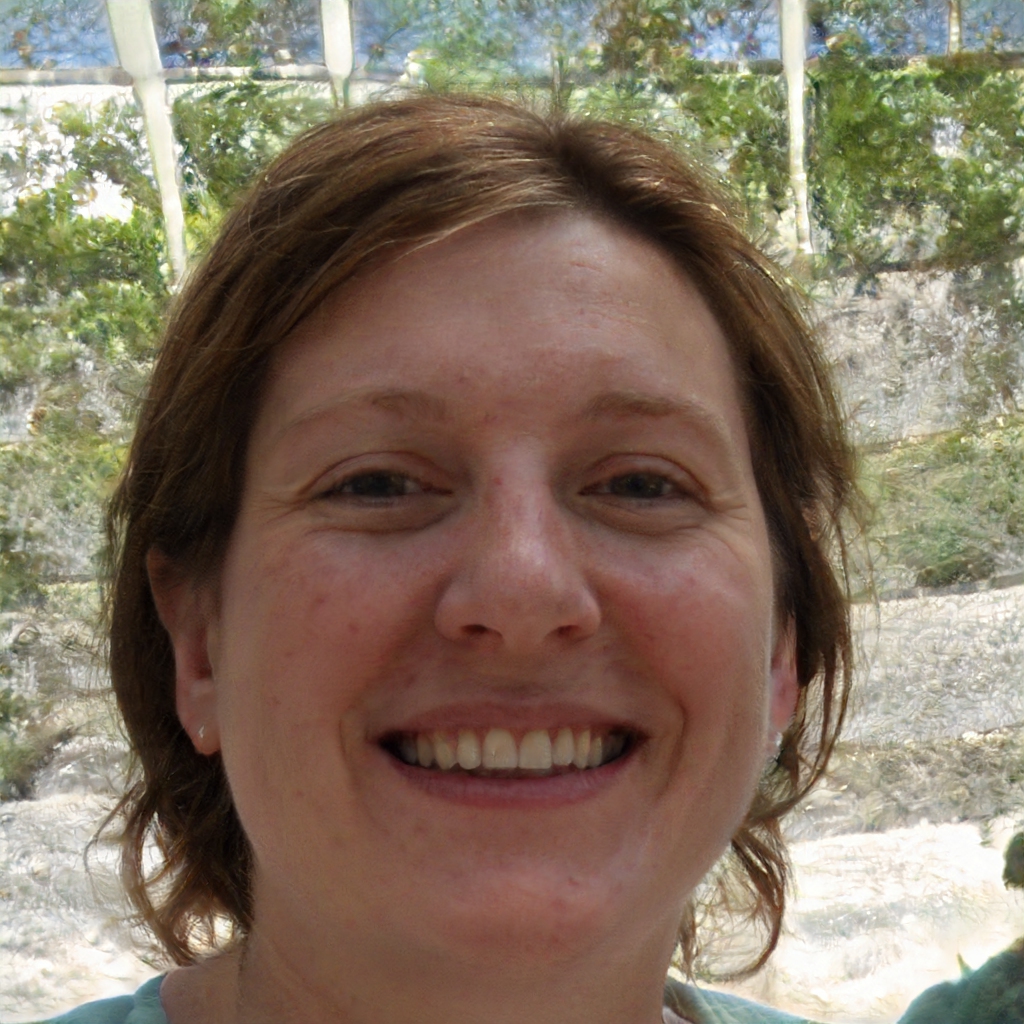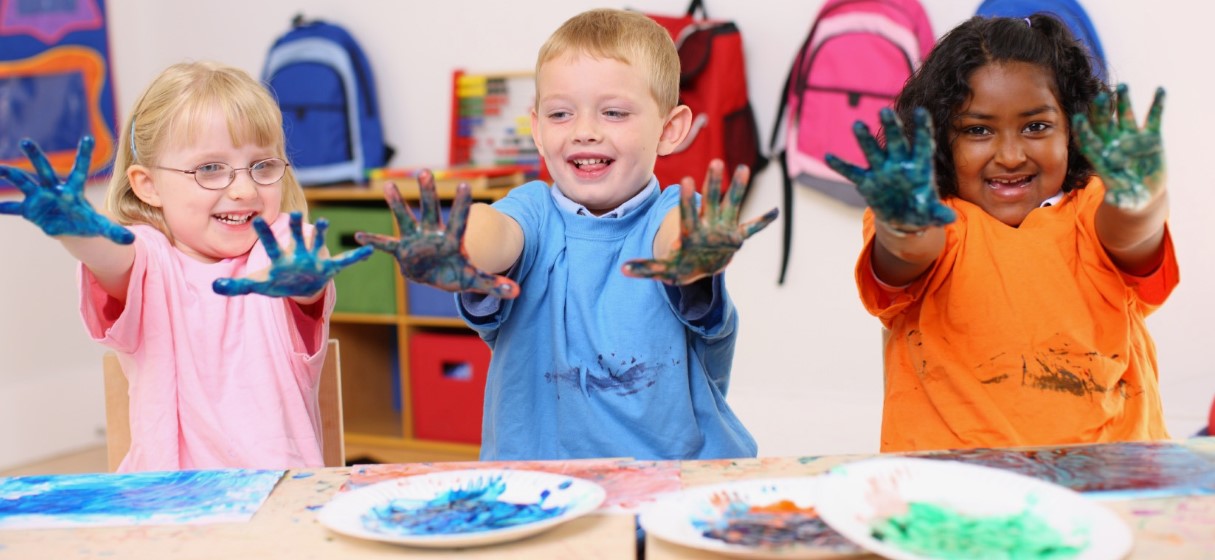The American curriculum in kindergartens, such as that offered by City American School, is globally recognized as one of the leading educational frameworks. It emphasizes a holistic approach to early childhood education, focusing on the development of children’s natural abilities, work skills, physical and intellectual growth, psycho-emotional well-being, and social competencies necessary for successful adaptation in modern society. This detailed exploration will highlight the distinctive features of the American kindergarten curriculum, its teaching methodologies, and how it compares to other international programs.
Key Features of the American Kindergarten Curriculum
Development of Natural Abilities and Work Skills
The American kindergarten curriculum is designed to nurture children’s inherent talents and instill essential work skills. Activities are tailored to individual learning styles and interests, encouraging creativity, problem-solving, and critical thinking. This personalized approach ensures that each child can thrive and develop a passion for learning, setting a strong foundation for future academic pursuits.
Physical and Intellectual Development
Physical development is promoted through structured physical education programs and free play, which enhance gross and fine motor skills. Intellectual growth is fostered through a balanced mix of academic and exploratory activities, including literacy, numeracy, science, and the arts. By engaging children in a variety of activities, the curriculum supports cognitive development and helps children build a broad knowledge base.

Harmonious Psycho-Emotional Development
Emotional intelligence and resilience are key components of the American curriculum. Programs are designed to help children understand and manage their emotions, develop empathy, and build strong, healthy relationships with peers and adults. Activities such as cooperative games, storytelling, and role-playing are used to teach emotional regulation and social skills, which are essential for long-term mental health and well-being.
Social Skills for Modern Society
Socialization is a cornerstone of the American kindergarten experience. Children learn to communicate effectively, collaborate with others, and navigate social situations. This focus prepares them for successful integration into school environments and broader society. Social skills are taught through group projects, class discussions, and community involvement activities, fostering a sense of belonging and community awareness.
Teaching Methodologies: Play-Based Learning
The primary method of teaching in American preschools is play-based learning. This approach recognizes that young children learn best through play, which gradually evolves into more structured educational activities. Play-based learning fosters creativity, exploration, and discovery, laying a strong foundation for academic skills and school readiness. Teachers use a variety of play activities, such as building blocks, puzzles, and imaginative play, to teach concepts in an engaging and meaningful way.
Types of Training Programs in American Kindergartens
American kindergartens may implement various training programs, each with unique goals and methodologies:
Stress Reduction Programs
These programs aim to minimize stress and mitigate negative factors that could hinder children’s development. Techniques may include mindfulness practices, relaxation exercises, and supportive environments that promote a sense of security and well-being. Stress reduction programs help children develop coping mechanisms and resilience, which are crucial for their overall health and development.

Programs for Overall Development
Comprehensive programs focus on the holistic development of children, incorporating activities to enhance various skills and abilities. These may include literacy and numeracy, physical activities, arts and crafts, and social games. By offering a well-rounded education, these programs ensure that children develop a wide range of skills and are well-prepared for future academic challenges.
Comprehensive Training Programs
These encompass a wide range of activities, such as listening to fiction, physical education, singing, drawing, crafting, and group play. The goal is to provide a well-rounded education that supports all aspects of a child’s development. Comprehensive training programs integrate various disciplines and activities, promoting a balanced and inclusive approach to learning.
Skill Acquisition Programs
Specific programs are designed to develop writing and oral communication skills. These activities help children build foundational literacy and language skills, crucial for their future academic success. Skill acquisition programs focus on essential academic skills, such as reading, writing, and mathematics, ensuring that children are well-prepared for primary school.
Specializations in American Kindergartens
American kindergartens often offer specialized programs focusing on different areas of interest. Parents can choose kindergartens that emphasize mathematical skills, musical talents, or artistic abilities. Language immersion programs are also popular, providing children with early exposure to a second language. Specialized programs allow children to explore their interests and talents, fostering a love of learning and a sense of accomplishment.
The International Preschool Curriculum (IPC) is an example of a program that embodies the values of the American education system, such as tolerance, openness, and the development of leadership qualities. Unlike specialized programs, IPC does not confine children to specific areas but offers a balanced and inclusive approach to early childhood education. IPC emphasizes global citizenship, cultural awareness, and the development of critical thinking skills.
Daily Routine in American Kindergartens
A typical day in an American kindergarten starts with an hour of free play, allowing children to engage in activities of their choice. This is followed by a group discussion led by the teacher, where children learn about the day and date, and significant events or milestones. This practice helps develop a sense of time, awareness of the world, and conversational skills.
Throughout the day, children participate in various educational activities designed to foster independence, critical thinking, and self-expression. They are given choices in their activities, fostering a sense of autonomy and responsibility. The daily routine includes structured lessons, hands-on activities, outdoor play, and quiet time, ensuring a balanced and engaging learning experience.
Assessment and Progression
Every six months, teachers conduct assessments to evaluate children’s language abilities, literacy, numeracy, understanding of cause-and-effect relationships, and knowledge of their environment. These assessments help tailor educational experiences to individual needs and facilitate progression to more advanced groups based on the child’s development, teacher recommendations, and parental input. Assessment methods include observations, checklists, and developmental milestones, providing a comprehensive view of each child’s progress.
Preschool Program Centers
Preschool program centers prepare children aged 3–5 years for school. These centers focus on literacy, numeracy, writing, and socialization skills. Key areas of training include:
1. English Language Arts and Literacy:
– Listening and Speaking
– Reading
– Writing
2. Mathematics:
– Counting and Quantity
– Operations and Algebraic Reasoning
– Measurement and Data
– Geometry
3. Natural Sciences:
– Physical Sciences
– Life Sciences
– Earth and Space Sciences
4. Personal and Social Development
5. Physical Education:
– Gross Motor Skills
– Fine Motor Skills
6. Creativity:
– Drawing
– Coloring
– Cutting
– Gluing
– Playing with Dough
Upon completion of the preschool program, children receive a certificate detailing their attendance, behavior, and abilities. This certificate may be required for enrollment in primary school. Preschool program centers provide a structured and supportive environment, ensuring that children are well-prepared for the transition to formal schooling.
International Implementation: The UAE Example
The American kindergarten curriculum is also implemented internationally. For instance, the City American School (CAS) in Ajman, UAE, follows this curriculum. CAS provides a comprehensive educational experience that fosters creativity, inclusivity, and character development. The tuition for KG 1 at CAS is 19,800 AED. The international implementation of the American curriculum demonstrates its adaptability and effectiveness in diverse cultural contexts.
Comparing the American Kindergarten Curriculum to Other International Programs
European Kindergarten Programs
European kindergarten programs often focus on academic rigor and structured activities from an early age. For example, in countries like Germany and France, early childhood education emphasizes formal learning and discipline. The curriculum is more rigid, with a strong focus on literacy and numeracy skills.
In contrast, the American kindergarten curriculum is more flexible, allowing children to learn through play and exploration. This approach not only fosters creativity but also helps children develop problem-solving skills and a love for learning. European programs may also emphasize bilingual education, social integration, and cultural heritage, which complement the American focus on holistic development.
Asian Kindergarten Programs
Asian kindergarten programs, particularly in countries like Japan and South Korea, emphasize discipline, respect, and academic excellence. Children are often engaged in structured activities that focus on memorization and repetition.
The American approach, with its emphasis on emotional and social development, offers a more balanced education. It allows children to develop a broader range of skills, including emotional intelligence and social competencies, which are crucial for success in modern society. Asian programs may also incorporate traditional cultural practices and values, fostering a strong sense of identity and community.
Montessori and Reggio Emilia Approaches
The Montessori method, developed by Dr. Maria Montessori, and the Reggio Emilia approach, originating from Italy, are both widely respected early childhood education frameworks. These methods emphasize child-led learning, with Montessori focusing on individualized education and hands-on learning, and Reggio Emilia promoting project-based activities and community involvement.
The American kindergarten curriculum shares similarities with these approaches, particularly in its emphasis on play-based learning and fostering independence. However, it integrates a broader spectrum of activities, including structured academic lessons, which provide a well-rounded foundation for children. Montessori and Reggio Emilia schools often emphasize multi-age classrooms, student-directed activities, and a strong connection between home and school.
Conclusion
The American kindergarten curriculum stands out for its holistic approach, play-based learning methodology, and focus on developing a wide range of skills and abilities. Its adaptability and comprehensive nature make it a model for early childhood education worldwide, preparing children for academic success and lifelong learning. By focusing on the development of natural abilities, work skills, physical and intellectual growth, and social competencies, the American kindergarten curriculum ensures that children are well-prepared for the challenges and opportunities of the future.

Skydiver, maker, audiophile, Vignelli fan and TDC honorary member. Working at the nexus of simplicity and mathematics to craft experiences both online and in real life. I sometimes make random things with friends.
